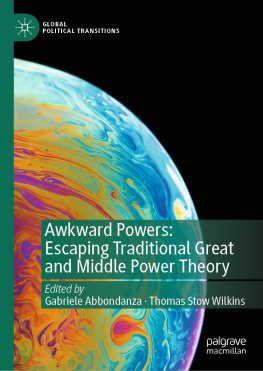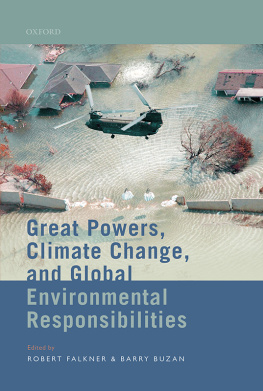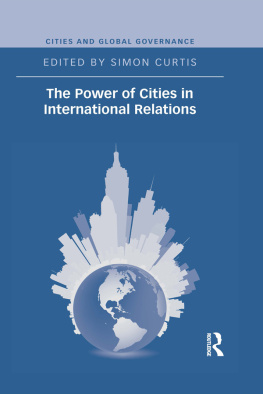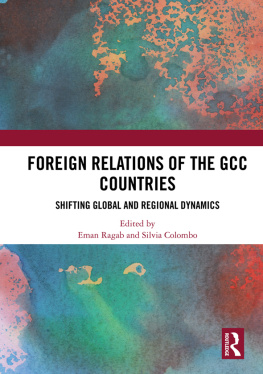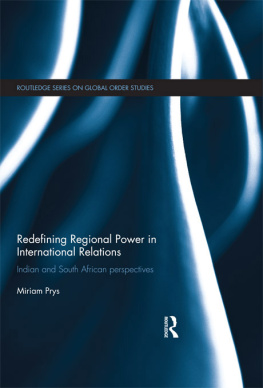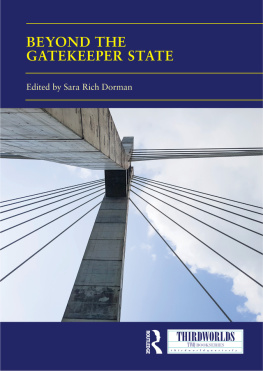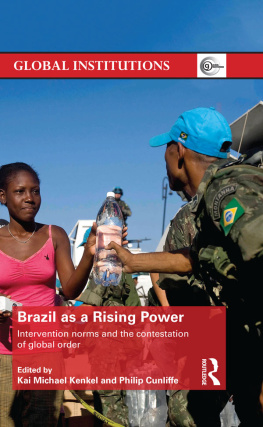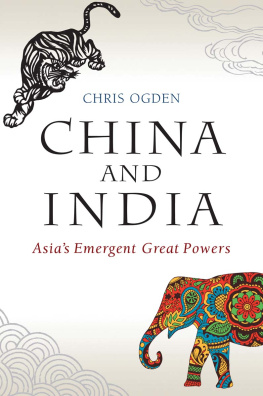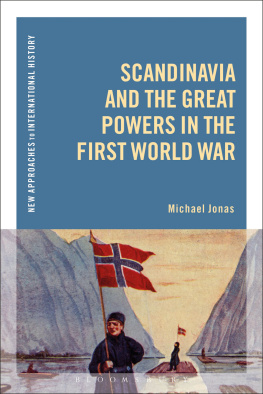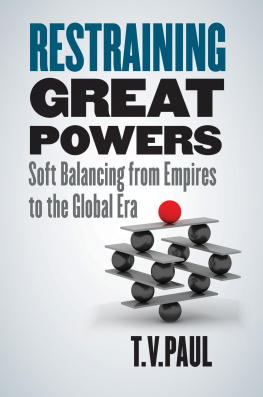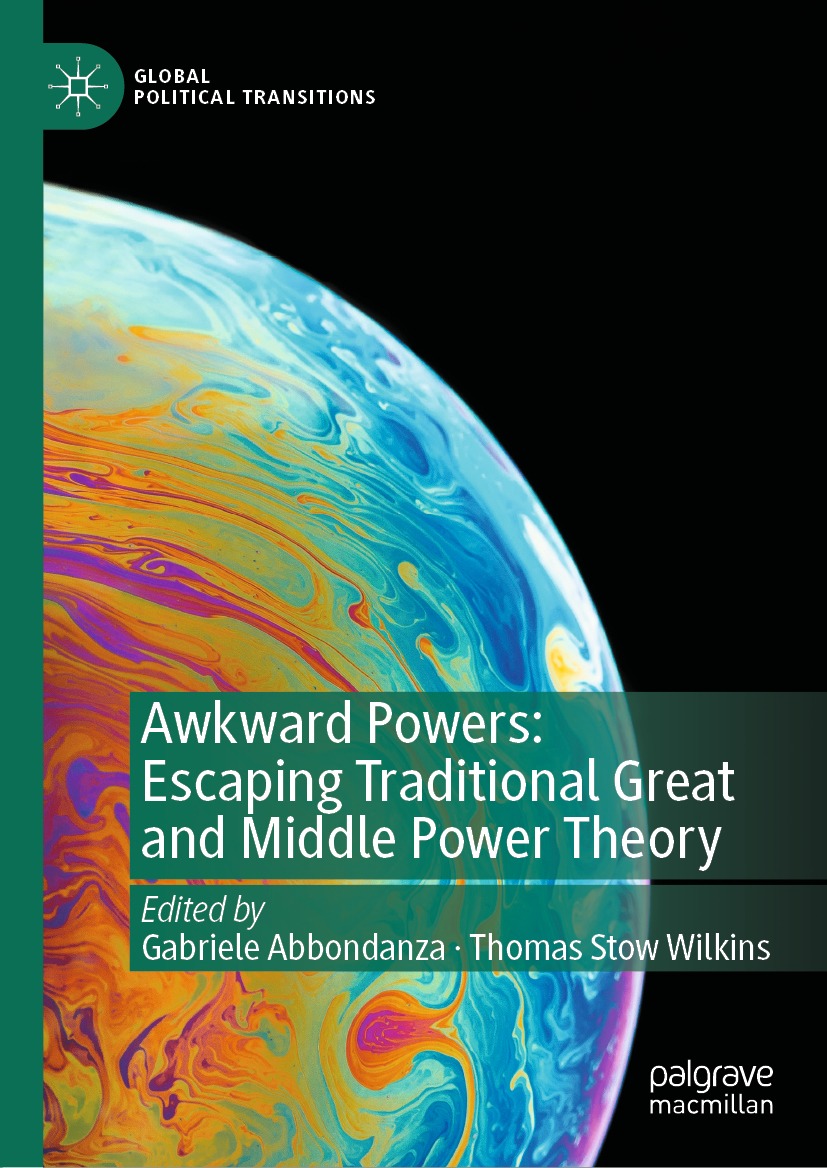Global Political Transitions
Series Editors
Imtiaz Hussain
Independent University of Bangladesh, Dhaka, Bangladesh
Finn Laursen
University of Southern Denmark, Odense, Denmark
Leonard Sebastian
Nanyang Technological University, S. Rajaratnam School of International Studies, Singapore, Singapore
The series publishes books dealing with important political changes within states and in relations between states. The two key questions it seeks to answer are: to what extent are countries becoming more democratic/liberal, and to what extent are inter-state/inter-regional relations creating/demanding new governance arrangements? The series editors encourage submissions which explore local issues (where the local could be a state, society, region) having global consequences (such as regionally, internationally, or multilaterally), or vice versa, global developments (such as terrorism, recession, WTO/IMF rulings, any democratic snowball, like the Third Wave, Fourth Wave, and so forth) triggering local consequences (state responses; fringe group reactions, such as ISIS; and so forth).
More information about this series at http://www.palgrave.com/gp/series/15583
Editors
Gabriele Abbondanza and Thomas Stow Wilkins
Awkward Powers: Escaping Traditional Great and Middle Power Theory
1st ed. 2022

Logo of the publisher
Editors
Gabriele Abbondanza
Department of Government and International Relations, University of Sydney, Sydney, NSW, Australia
Thomas Stow Wilkins
Department of Government and International Relations, University of Sydney, Sydney, NSW, Australia
ISSN 2522-8730 e-ISSN 2522-8749
Global Political Transitions
ISBN 978-981-16-0369-3 e-ISBN 978-981-16-0370-9
https://doi.org/10.1007/978-981-16-0370-9
The Editor(s) (if applicable) and The Author(s), under exclusive license to Springer Nature Singapore Pte Ltd. 2022
This work is subject to copyright. All rights are solely and exclusively licensed by the Publisher, whether the whole or part of the material is concerned, specifically the rights of translation, reprinting, reuse of illustrations, recitation, broadcasting, reproduction on microfilms or in any other physical way, and transmission or information storage and retrieval, electronic adaptation, computer software, or by similar or dissimilar methodology now known or hereafter developed.
The use of general descriptive names, registered names, trademarks, service marks, etc. in this publication does not imply, even in the absence of a specific statement, that such names are exempt from the relevant protective laws and regulations and therefore free for general use.
The publisher, the authors and the editors are safe to assume that the advice and information in this book are believed to be true and accurate at the date of publication. Neither the publisher nor the authors or the editors give a warranty, expressed or implied, with respect to the material contained herein or for any errors or omissions that may have been made. The publisher remains neutral with regard to jurisdictional claims in published maps and institutional affiliations.
Cover image: Avopix
This Palgrave Macmillan imprint is published by the registered company Springer Nature Singapore Pte Ltd.
The registered company address is: 152 Beach Road, #21-01/04 Gateway East, Singapore 189721, Singapore
Acknowledgements
The idea behind this book owes much to our belief that the structure of the international system is ever-changing, and that traditional categories informing the global hierarchies are struggling to keep up with the pace of such change. We do not aim to reinvent the wheel of International Relations theory, but rather it is our hope that the new concept of Awkward Powers will prompt a fresh debate in the discipline, and one that will lead to a deeper and more nuanced understanding of the multiple power shifts of the twenty-first century. To that end, it seeks to challenge traditional middle and great power theory in order to refine and update it, while shedding light on a number of significant but understudied states.
The core idea behind the Awkward Powers developed informally at the end of the International Political Science Association (IPSA) World Congress of Political Science, held in Brisbane in 2018. Conversations with colleagues with whom we previously collaborated led us towards the unexplored topic of Awkward Powers. On this basis we were able to forge a research team of contributors, including new participants, to achieve an impressive roster of case studies, based upon their respective specialisms. We would like to express our gratitude for the hard work of all of our chapter contributorscolleagues old and newwithout which the volume could not have been realised. The book is testament to their dedication and professionalism. Selected initial findings were presented at the 2019 Australian Political Science Association (APSA) conference in Adelaide, where we received encouragement and precious feedback on the project, for which we thank the colleagues involved.
We are also grateful for the sustained support of the staff at Palgrave Macmillan: Vishal Daryanomel, our commissioning editor, who first heard of our book proposal at APSA and supported us thereafter; Naveen Dass and his colleagues at Springer Nature for their invaluable assistance throughout the project; and A/Prof. Allan Patience and Dr. David Walton, who we now know have reviewed our drafts and provided the flattering reviews.
Last, but surely not least, we are most indebted to our partners and families. For their love and constant support, we remain deeply grateful.
Sydney, February 2021
Gabriele Abbondanza
Thomas Stow Wilkins
Contents
Part I Introduction
Gabriele Abbondanza and Thomas Stow Wilkins
Part II Awkward Great Powers
Gabriele Abbondanza
Emilian Kavalski
Thomas Stow Wilkins and Lucas P. Rezende
Part III Awkward Middle Powers
Amy Freedman
Sarah Teo
Jonathan Ping
Yolanda Kemp Spies
Jiye Kim
Dorothe Vandamme
Virginie Grzelczyk
Aleksandar Mitreski
Gil Merom
Peng Er Lam
Marion Jacques , Tanguy Struye de Swielande and Tanguy de Wilde dEstmael
Part IV Conclusion
Thomas Stow Wilkins and Gabriele Abbondanza
List of Figures
List of Tables
Notes on Contributors
Dr. Gabriele Abbondanza
is a Sessional Lecturer and Unit Coordinator at the Department of Government and International Relations, University of Sydney (Australia). His research interests include regional, middle, and great power theory, national power, Australian and Italian foreign and security policy, and irregular migration. He is co-editor, with Thomas Stow Wilkins, of Awkward Powers: Escaping Traditional Great and Middle Power Theory (Palgrave Macmillan, 2021), and he is the author of Italy as a Regional Power

